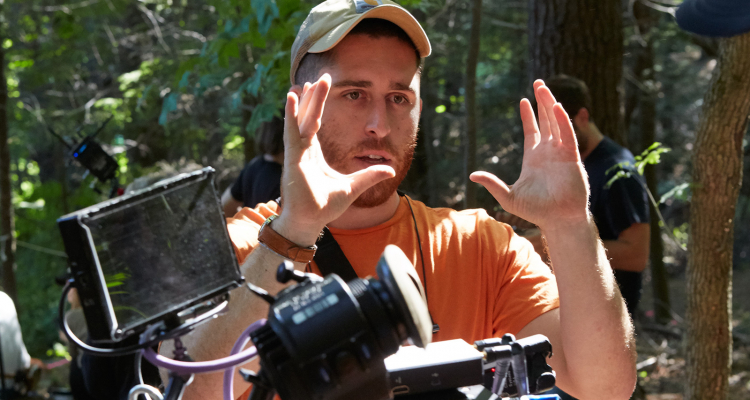Some of you may have missed out on 2016’s hidden masterpiece, Trey Edward Schults’ “Krisha.” However, there is a vocal fanbase behind the film and many are starting to see Shults as one of the most talented young indie filmmakers to come around in ages. “Krisha” was a movie that defied standard film experiences, feels way ahead of its time, and could prove to be, in the forseeable future, a pivotal moment in film history. A scathing, Kubrick-ian vision of a family reunion from hell, “Krisha” not only turned out to be a miracle for the work of art that it was, but it also felt damn near miraculous to have such an intimate and independently financed film, shot in nine days with a cast consisting mostly of Schults’ family, existing in the current cinematic zeitgeist.
Shults’ follow-up was much anticipated and finds the director shifting gears. Set in a post-apocalyptic future, where an unknown entity is killing off humanity, “It Comes at Night” tells the story of a man (Joel Edgerton) who will protect his wife (Carmen Ejogo) and son (Kelvin Harrison Jr.) at any cost. The bolted, secure, but isolated home which they share together along with, in a possible nod to Kubrick, their dog Stanley, is shaken up when a desperate young family shows up, seeking refuge from the pandemic. What comes next is the definition of psychological terror as Shults slowly creeps us, frame by frame, into his slow-burning web of dreadful horrors. It’s a mindbender that slowly reveals itself right up until its final, devastating frame. The film boasts a top-notch cast with Riley Keough and Christopher Abbott rounding out the cast, but the real revelation is Kelvin Harrison Jr, as Travis, the married couple’s 17 year-old son, whose expressive eyes can tell a story all by itself. It’s an instinctive, sensitively rendered performance filled with the subtlest of physical details. He’s the eyes and ears to which we see this horrifying tale unfold.
Shults’ incredible filmmaking prowess in “Krisha” continues with this film. With “It Comes at Night” he now has the chance to present his art to a wide mainstream audience, many of which will be tempted to discover “Krisha” for the very first time. Cinephiles should be excited that there are filmmakers out there like Shults, shaking up the medium with an untamed and unique cinematic vision. I spoke to the 28 year-old writer-director about his latest movie and the last two years which have whipped by like a whirlwind.
 I’m sure you heard, John Waters put “Krisha” as his number one movie of 2016.
I’m sure you heard, John Waters put “Krisha” as his number one movie of 2016.
It was incredible, mind-boggling. “Krisha” was nuts. So many fantasies came true with that film. In life you dream about stuff, a lot of times it never goes the way you do, but then so many instances happened with that movie that felt really surreal and humbling.
“It Comes at Night” is getting a much wider released, at least compared to the rollout “Krisha” received. How do you feel about that contrast?
It’s weird. I just finished the movie weeks ago, so I haven’t slowed down since we shot it in August. I wrote this movie around the same time I wrote “Krisha,” they’re all kind of intermixed. So, I have no perspective, but I’m looking forward to the release being over with so that I can process what’s going on. I’m looking forward to having some time to decompress.
It would make sense that you wrote “Krisha” and “It Comes at Night” back to back, because they both have to do with families in desperate times.
Yeah, personally to me they’re so inter-meshed as companion pieces. They do go about things in very different ways, but they have commonalities as well. They were both inspired by my relationship with my Dad. They’re both about a kind of confrontation and looking at things that we don’t want to look at, if that makes any sense.

